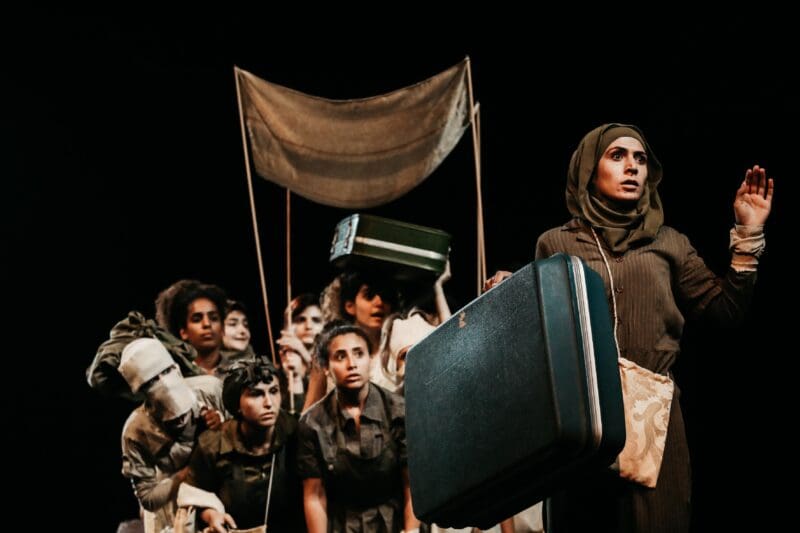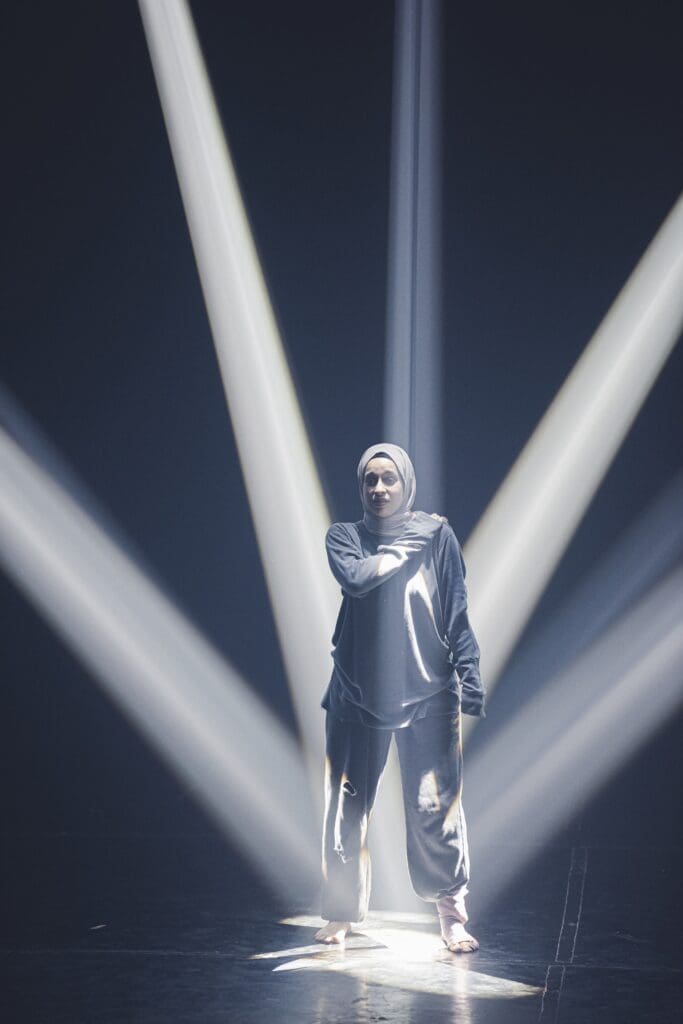USING THEATRE as a force of good is the London and Middle East-based arts and education charity, Seenaryo, and it has announced the launch of its guide: Women Leading Theatre for Change.
Promoting creativity and female empowerment, the guide is in association with UN Women and its author Zainab Chamoun, shares the participatory approach to creating theatre and draws on case studies and lived experiences to demonstrate how theatre can (and has very successfully) been an effective tool for facilitating peace and inclusion within conflict-affected communities.

Khawla performing in TILKA. Photograph: Rima Maroun
The charity, which was co-founded by Victoria Lupton and Oscar Wood in 2015, has become a leading specialist in participatory theatre with under-served communities in Lebanon and Jordan, and to date has reached 135,000 children, youth and women.
In the run-up to their 10th anniversary and against a backdrop of utter devastation in the region, their partnership with UN Women and Women Now for Development spotlights the healing and uniting nature of participatory theatre.
Victoria says, “I strongly believe that to live in dignity is to be able to tell your story and have it heard. Storytelling has the genuine power to humanise, alter narratives and influence how people perceive one another. I see it as a political and ethical belief in human dignity, and I recognise the value of participatory arts, theatre and culture in upholding this idea.”

Photograph: Nabil Darwish
Providing insight on both personal and public levels, the author explores how participatory theatre can bring out community cohesion and peace, whilst individually supporting participants emotionally and practically. From assisting in confidence building, communication and personal healing processes, women are empowered through learning leadership skills that they also apply to everyday life.
On the ground there is Lama Amine, Head of Arts at Seenaryo who has seen the positive impacts first-hand, “Our participatory approach empowers women from different backgrounds to use theatre as a space to grow. Theatre is a platform for them to express themselves freely, where they can share their unique experiences in this safe space we provide.

Photograph: Ali Sheikh
The element of creativity means the women can touch on stories and issues that they really want to share. Sharing their stories on stage gives them confidence. And when they tell their story on stage, it is no longer just their story – it becomes a collective experience that the audience also relate to.”
The guide is available to read online, and for further inspiration check out Seenaryo’s acclaimed documentary TILKA which won the Best Local Documentary award at the Lebanese Independent Film Festival. It is an intimate portrait of five women navigating multiple crises in Lebanon, and as the country grapples with collapse, they weave together a story inspired by their experiences as women fighting against the odds for their rights.
by Felicity Williams
